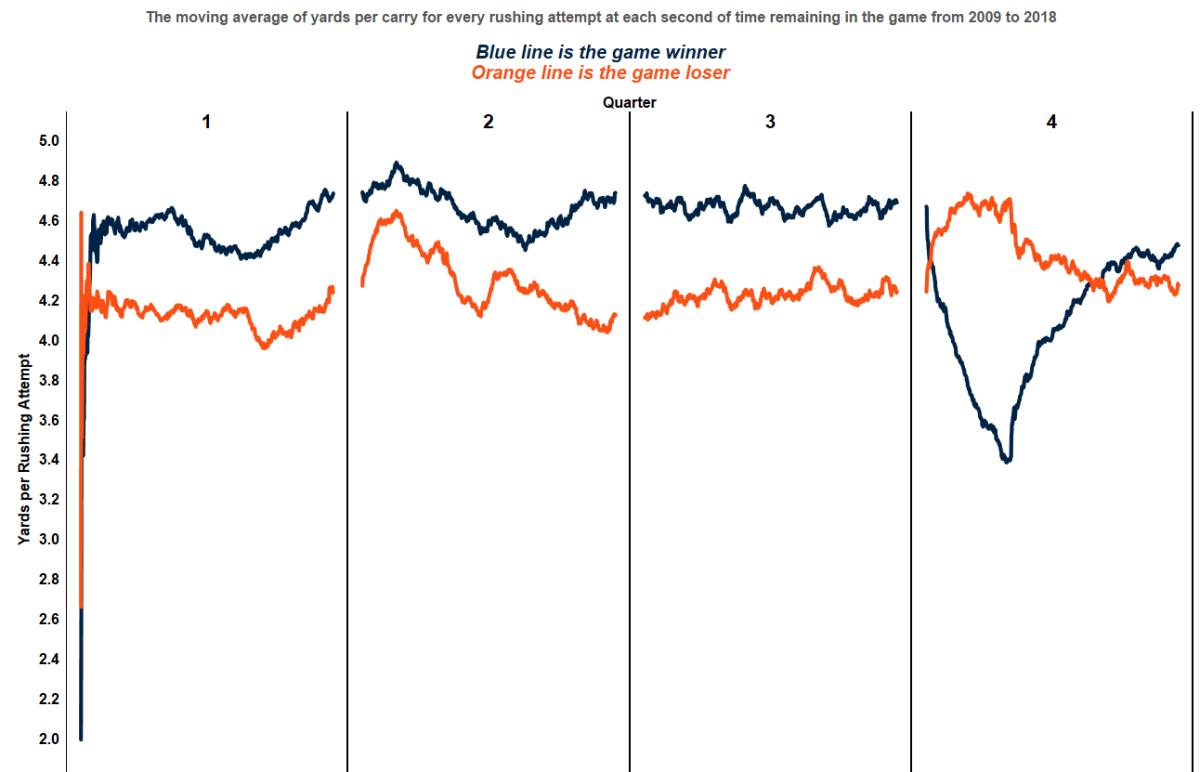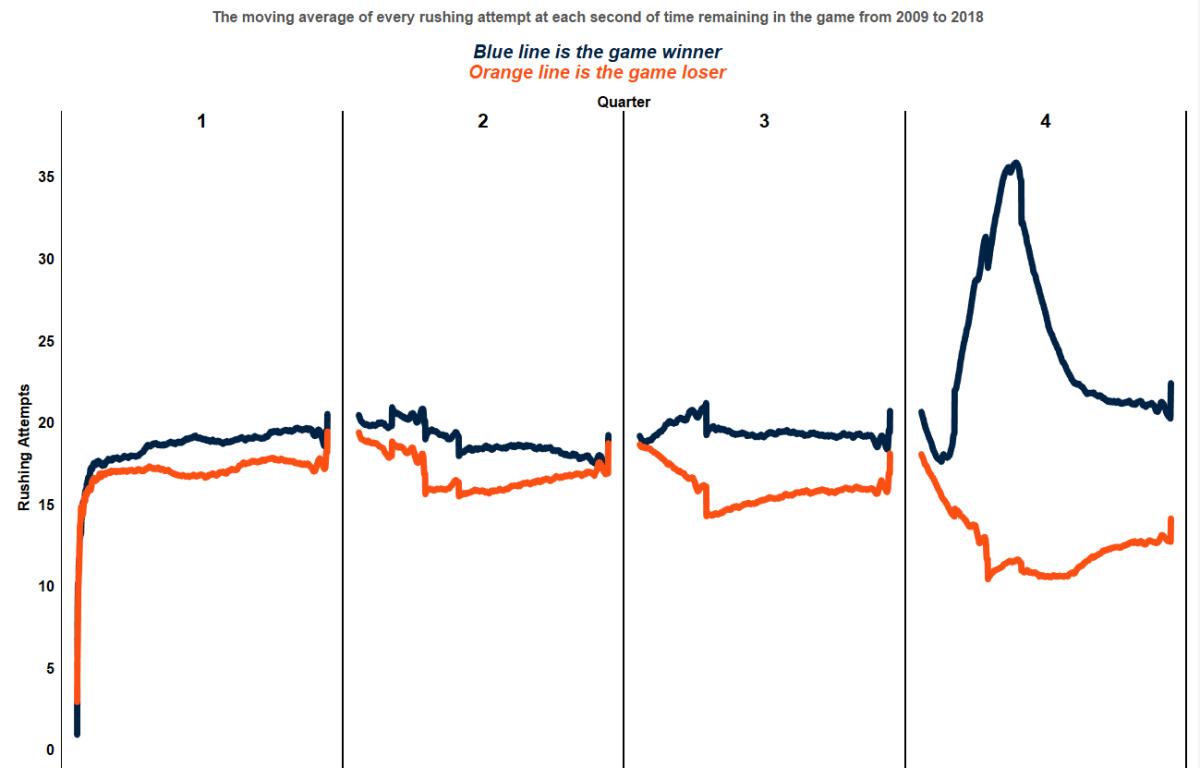Advanced Analytics Reveal Why Broncos Must Commit to Rushing Attack
The Denver Broncos have had more success this season when their running game has performed well. However, many analysts believe passing the ball is much more efficient and therefore teams should abandon the run.
What should fans believe? Should the Broncos run less, even though most of their wins happen when they produce better rushing performances?
Coaches across the NFL believe in running the ball. NFL offensive lineman Mitchell Schwartz recently posted a long Twitter thread discussing why imposing your will in the running game has a demoralizing effect on your opponent and therefore leads to winning.
But Passing = Points, Right?
However, history has shown that passing more can be attributed to scoring more points per game. In 1984, the NFL began to see more passing attempts than rushing attempts and that gap has only gotten wider since.
The points explosion from that date on indicates that passing the ball does lead to higher points per game. So why do teams still believe in running the ball?
Is the rushing attack a hold-over from the past? If done well, does it really have a demoralizing effect on an opponent?
Moving Parts
When it comes to the game of football, there are so many variables to understand to definitively answer any question analytically or by film study. There are 22 players on the field all contributing to a play in some way, making it difficult to attribute the success or failure of a single play to one player or even one event consistently.
Results of Establishing Run Early in Games
However, we can look at some data to understand whether running the ball well in a game early on has an impact on winning or losing. To that end, I've analyzed the yards-per-carry (YPC) metrics for every rush from 2009-18.
That data was placed on a timeline of each second remaining in a game. The moving average was calculated to smooth out the lines so that we can make sense of the data visually.
The image below reveals that the winning team has a higher YPC than the losing team in the first three quarters. It's more difficult to judge in the final quarter because a team that is leading will tend to rush more.
This not only has the potential to lower the YPC, but most observers know that the defense is geared up to stop the run at this stage because it can anticipate what's coming. The earlier portion of games is not as score-dependent.
The analysis clearly reveals that effective running has an impact on winning or losing as the winning team line is greater than the losing team line in quarters 1-3.

The rushing YPC could demoralize an opponent, but that is difficult to quantify because when putting passing yards per attempt in the same graph, the lines for both the running and passing games look the same, meaning that offensive effectiveness is a key to victory regardless of whether it is done via the run or pass. It's not a definitive answer at this point.
Rush-Attempt Volume to Weaken Opponents
Next, it's important to look at the sheer number of rushing attempts. Many coaches believe that pounding the rock, regardless of whether it's successful on a yards-per-rush basis, is equivalent to a body blow in boxing. It wears the opponent down.
The below image represents the number of carries across the seconds remaining in a game in a similar way to the above image. Although the gap in the lines are not as large as it is in the YPC graph, the winning team typically rushes more through the first three quarters.

This particular analysis does lend some validity to the 'running more equals wins' theory because more passing attempts don't have the same impact as running attempts or correspond as strikingly to victory. In fact, the winning and losing lines do not diverge as significantly when passing metrics are put into the same graph.
In the second quarter, the winning and losing lines are identical when passing, but in the rushing attempts analysis, the lines begin to diverge at a greater rate. The theory about the body blows to the defense holds some water.
What it Means for Broncos
The Broncos should not abandon the run unless it is absolutely necessary. Denver needs to establish the run early and keep hammering the defense until it breaks. This is important because Teddy Bridgewater, although efficient, is not an elite quarterback, and the Broncos' offense isn’t ever going to be mistaken for being dynamic.
The running game, however, is dynamic. Rookie running back Javonte Williams is on the angry run highlight reel after almost every game and the Broncos are ranked 11th in the league for average yards per rush.
The Broncos have also produced the fourth-longest run of any team this season. So, with the Detroit Lions next up on the schedule, run the ball to win the game.
Follow Thomas on Twitter @ThomasHallNFL.
Follow Mile High Huddle on Twitter and Facebook.
Subscribe to Mile High Huddle on YouTube for daily Broncos live-stream podcasts!
